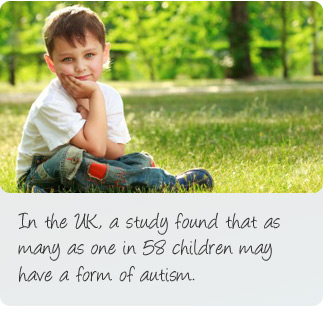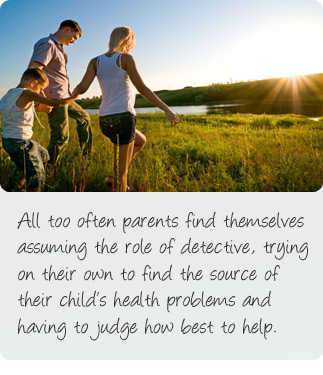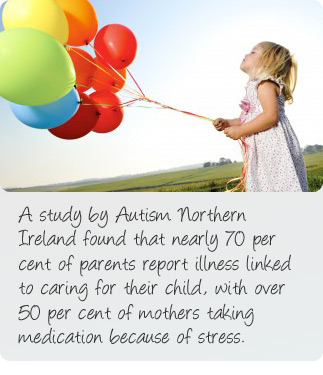What is Autism?

What is autism? The medical definition of the condition focuses on difficulties in three areas: social interaction, communication and imagination. These are referred to as the ‘triad of impairments’.
But defining autism merely in relation to these impairments fails to reflect a huge body of research and clinical experience indicating that many children on the autistic spectrum also have related health issues. These problems are often connected to the gut and immune system.
Unfortunately, most mainstream physicians diagnosing autism lack a robust approach to treating it. Parents are not given the breadth of information they need in order to improve their child’s life.
Many of these physicians have been trained to accept that the causes of autism spectrum disorders are entirely genetic. Government-funded research has for years primarily focused on genetic links with autism, and this has yielded little to improve our children’s lives.
Meanwhile, research conducted around the world confirming the impact of health problems on children diagnosed with autism is not being acted upon, leaving our children untreated.
All too often, parents find themselves assuming the role of detective, trying on their own to find the source of their child’s health problems and having to judge how best to help. They usually have to bear the cost of any interventions they try, and this expense can be crippling.
Autism Eye believes that, once diagnosed, children with autism should be routinely screened for the gastrointestinal, immunological and infection-related issues that appear to beset our children. Parents should not be left unaided to discover the need to deal with these issues, then have to spend huge amounts of time – even years – researching treatments, and bear all the costs of therapies by themselves.
Educational intervention
We also believe that early, intensive educational intervention is vital, and that parents should not have to battle for this when it can make a significant improvement to their child’s life.

We say all this because, as parents of a child with autism, we know from our own experience that treating health-related issues and early educational intervention can have a very positive effect on an autistic child’s behaviour, cognitive development and general health and well-being.
Unfortunately, from the moment of diagnosis, we have found that parents are presented with negative messages about their child. They are left doubting they can effect change. Families are not made aware that they can improve their child’s condition. Many do not know what is available to make that happen.
Lack of information
The lack of information given to families about the range of interventions available only adds to the stress of raising a child with autism.
And stressful it certainly is. Parents’ lives are turned upside down, careers put permanently on hold, earnings curtailed, and relationships put under strain. A study by Autism Northern Ireland found that nearly 70 per cent of parents report illness linked to caring for their child, with over 50 per cent of mothers taking medication because of stress.
 No consensus on rocketing autism rates
No consensus on rocketing autism rates
Frustratingly, there is still no consensus among experts around the world on why our children have developed autism and why the number of people with the condition is rising so rapidly. Statistics from the US reveal that the estimated prevalence of autism has rocketed to one in every 36 births, with more than one in 27 boys affected (National Center for Health Statistics, November 2017).
Based on these statistics and a continuing 13 per cent growth rate, it is estimated that the incidence of autism in the US will grow to one in four children by the year 2033.
In the UK, an older study found that as many as one in 58 children may have a form of autism (Cambridge University, 2007). Another estimate, based on the 2011 UK Census Figures, reckons that more than 695,000 people in the UK may be autistic, an estimate derived from a 1.1 per cent prevalence rate.
Governments across the globe are failing to respond with any effect to this deluge of new autism cases hitting our societies. They also seem not to be aware that a greater availability of effective early medical and educational interventions may drastically reduce the impact of autism spectrum disorders on the economy, as well as improve the quality of life for people with ASD and their families.
Cost to economies
The cost of autism to economies around the world has reached staggering proportions. In the UK, the expense has been estimated at £28.2 billion a year (London School of Economics, 2007). In the US, a study estimated the annual cost of autism in 2015 at $268 billion, and predicted it will grow to around $461 billion by 2025.
We know how difficult it is to fight against a system where there is insufficient guidance and intervention, and at the same time do the best to raise your child. Autism Eye aims to empower parents to become more knowledgeable and increase their capacity to respond to, and represent, their child’s needs. We aim to help parents gain access to appropriate education and health support, enabling their child to develop with as much dignity and independence as possible.
News and useful editorial free of charge
We feature therapies for children and young people with autism in every issue of Autism Eye Magazine, as well as news and resources that can help. You can read digital editions of the magazine free of charge – simply click here to subscribe and get started.
















